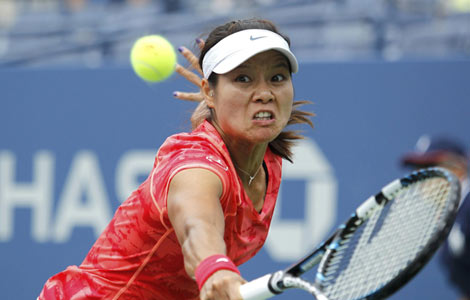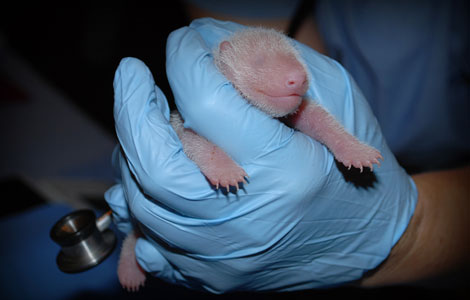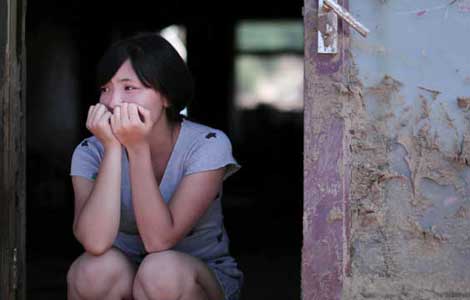Draft targets retailers of substandard products
Updated: 2013-08-27 01:00
By Zhao Yinan and Zhou Wenting (China Daily)
|
||||||||
A draft law amendment unveiled on Monday has proposed raising the top compensation that business owners must pay if they intentionally sell substandard products.
The latest draft amendment to the Law on the Protection of Consumer Rights and Interests requires business owners, who are aware of a product's flaws but sell it anyway, to pay up to three times the monetary loss to affected consumers if the products and services cause severe health problem or death.
If the flawed products do not cause major health problems, the compensation will be three times the retail price, the draft says.
The draft was submitted to the top legislature — the National People's Congress Standing Committee — for a second reading on Monday. A new draft law or amendment usually goes through three readings before it is adopted.
Experts and industry professionals said the proposal is a big step forward in protecting consumer rights, and may help reduce the country's food-safety incidents.
The existing law on consumer rights, enacted in 1993, stipulates that producers should compensate consumers for damages if the flawed products they intentionally sell cause severe health problems or death.
If the products do not cause major health problems, the compensation is only the product's price. In other words, compensation would be only 10 yuan ($1.60) if the price of the product is 10 yuan.
But such low compensation usually cannot offset the damage caused to consumers and may result in consumers not asking for compensation, said Qiu Baochang, head of the legal team of the China Consumers' Association.
"A bag of instant noodles is sold for 1 to 2 yuan, which made many consumers opt to give up asking for compensation from the sellers and producers, not to mention bringing them to court," he said.
Therefore, the first draft amendment to the law, unveiled in April, set the compensation ceiling at twice the monetary damage for a product causing severe health damage or death, or two times the price if the consumer isn't injured.
However, many legislators argued this was not enough, as it might not be a sufficient deterrent.
For that reason, the latest draft further raises the compensation to three times the damages if the victim is injured or dies, or three times the price if he or she is not injured.
Liu Junhai, deputy director of the China Consumers' Association, said there are different compensation standards in different parts of the country.
"So the amount of money received by consumers in different regions of the country will be different," he said.
"Say in Beijing, the compensation for death will be much higher than a similar case in inland areas."
Zhou Dewen, chairman of the Wenzhou Small and Medium-sized Enterprises Development Association, said the stiffer punishment is in line with the current economic picture.
He said the stipulation can improve the current legal system in China, as well as potentially decrease food safety incidents.
"Despite repeated bans, food safety incidents caused by intentional contamination by producers out of economic benefits did not stop. An increased penalty will work as a warning sign and is essential," Zhou said.
But he also argued that the amount of compensation cannot repay the loss of a victim's life or the suffering of the consumer.
Businesses also welcomed the new rule, saying it is reasonable that cheating will bring about punitive damages.
"The rule will also make food distributors carry out more stringent quality checks. If they have rotten or broken products, they'll feel more obligated to return the goods to suppliers," said Zhang Jianjiang, general manager of Shanghai Han Dynasty Restaurant Management Co Ltd.
Celebrities could be held liable
Celebrities could be held accountable for deceptive advertising if they endorse a health product that injures consumers, a draft amendment proposed on Monday.
The draft amendment to the Law on the Protection of Consumer Rights and Interests suggested that those designing, making and publicizing false advertising of products or providing services should bear joint liability if the products and services affect consumers' health and causes harm.
Any "social groups, organizations and individuals" who endorse substandard products to consumers in a false advertisement should also bear their share of responsibility, the draft amendment proposes.
Yao Hui, a law professor at Renmin University of China, said although the stipulation can apply to any individual, it will mostly affect celebrities.
"Although sometimes celebrities do not know in advance that the products have quality problems, they should also be held liable for their endorsement, since many consumers purchase the products only because of the advertisement," Yao said. "In that case, the advertisement and the purchase are in a causal relationship."
But Yao suggested lawmakers make clear whether individuals, including celebrities, should take the responsibility after an endorsement has ended.
"A consumer may keep buying a product for many years even after the advertisement has stopped. To what degree should the individual be responsible for the endorsement in those circumstances?" he said.
Most Viewed
Editor's Picks

|

|

|

|

|

|
Today's Top News
Pet abuse videos prompt outrage
Snipers shoot at UN weapons inspectors
Kerry: Syria chemical arms use 'obscenity'
Foreigners nabbed for personal info trafficking
PLA Navy heads for routine drill in W.Pacific
Business confidence 'buoying growth'
Prosecutors seek heavy punishment for Bo Xilai
UN to contact US over spying report
US Weekly

|

|















